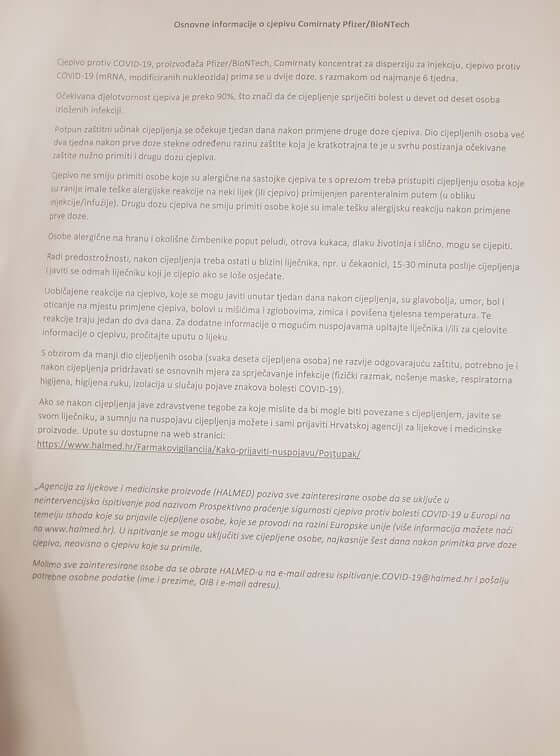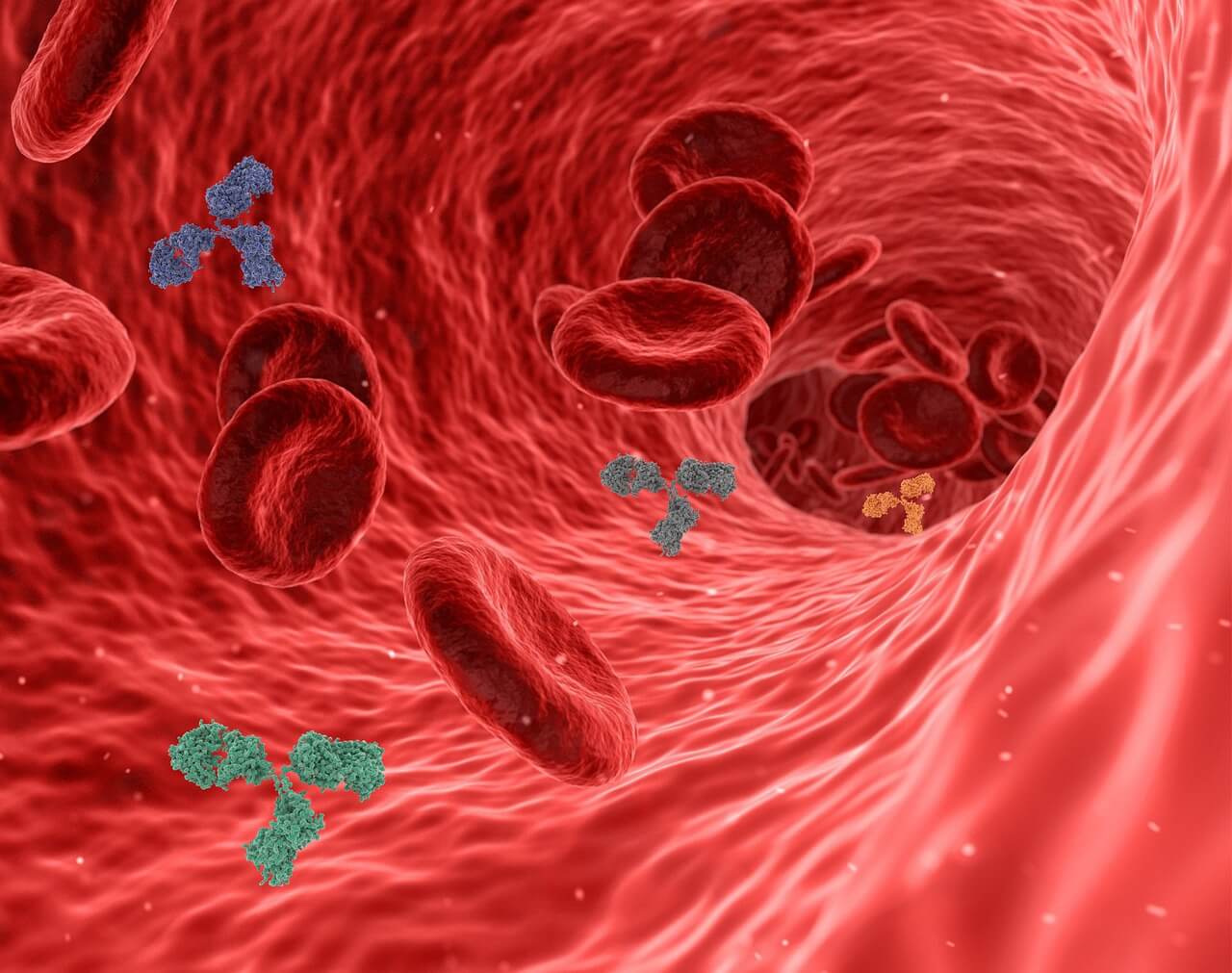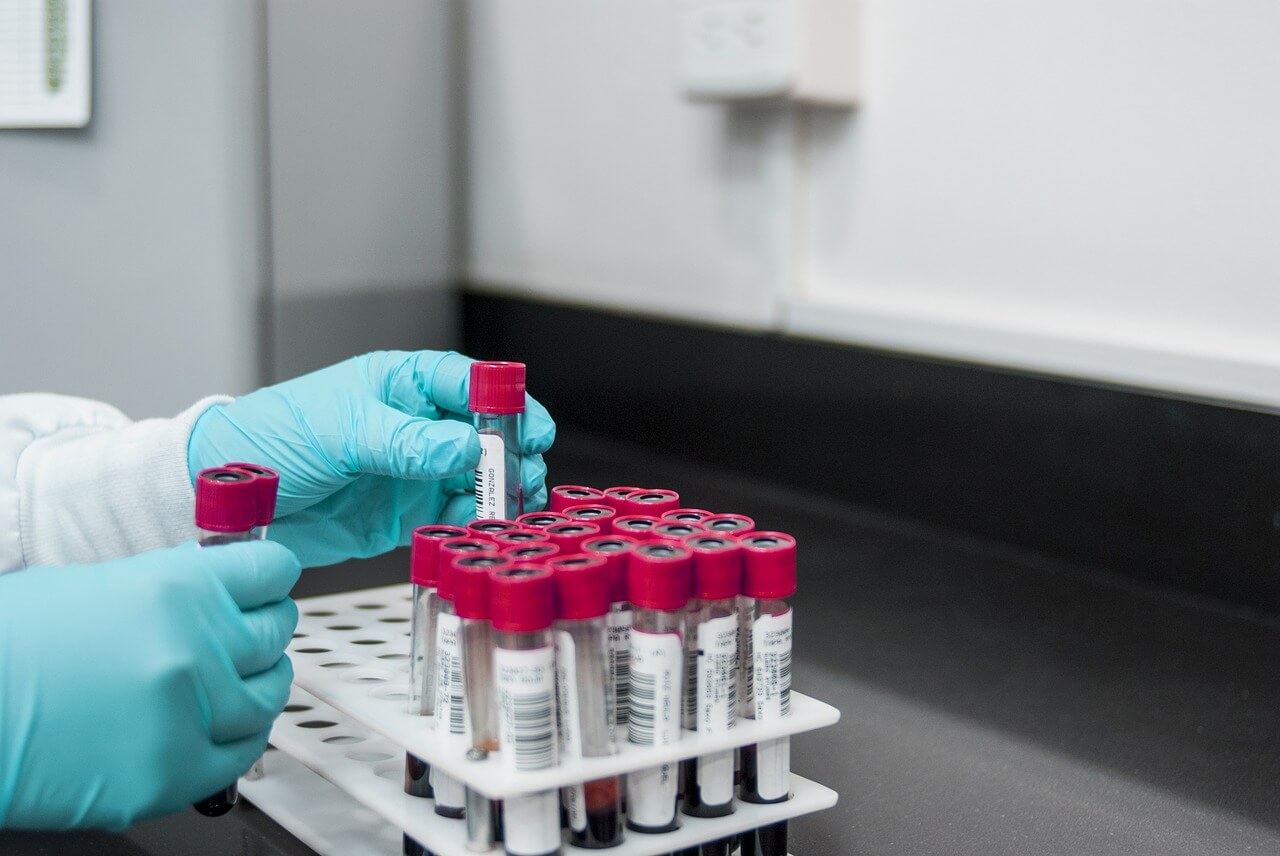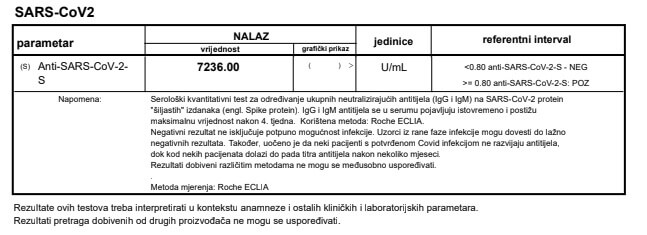Rugvica Investment to Return Croatian Immunological Institute to Old Glory
April the 27th, 2023 - The power of the Croatian Immunological Institute, which many have referred to over recent years, is set to make a comeback thanks to investments being made in Rugvica.
As Marija Crnjak/Poslovni Dnevnik writes, during the middle of next year, the snake bite antidotes produced in the new Croatian Immunological Institute's plant, which recently started being designed, should hit the market.
Preparatory work and the creation of a technological study for the construction of a new plant for the production of blood plasma and vaccines are now underway, for which a public tender is expected in two years. This project is no longer a precarious one and is now financially in an unquestionable state, because there is a market that is chomping at the bit to welcome vaccines with some of the parent strains that Croatia has. On top of that, the returns on investments will likely be relatively quick.
All of this more than encouraging information can be the basis for the further development of the Croatian Immunological Institute, which, later down the line, can also produce vaccines based on mRNA technology without much of an issue. This is how we can summarise the plan that, after many years of back and forth and beating around the bush by the government and administration, was finally devised in order to sustainably give the old Croatian Immunological Institute a new perspective and financial profitability. The realisation of the first steps in the construction of the new plant in Rugvica have now officially begun.
The best solution
As is already fairly well known, in June 2022, the municipal council of Rugvica made a decision to donate almost 70 thousand square metres of land to the Croatian Immunological Institute, for the purpose of building an entire plant dedicated to the production of biological drugs. They are also building a separate plant for the production of antitoxin against snake bites inflicted by venomous European snakes, and a biopharmaceutical facilities for the production of animal immunosera intended for both human and veterinary use.
This decision was preceded by a statement from the State Attorney's Office of the Republic of Croatia and the Ministry of Economy and Sustainable Development, as well as the Ministry of Spatial Planning, Construction and State Property, all of which determined that there are no legal obstacles to such a transaction. Rugvica turned out to be the best solution because the process of establishing property legal relations over in Brezje, where horses are still located for the production of antitoxin from snake venom, is still ongoing.
As announced by the Ministry of Health on this occasion, the construction of the entire plant was supposed to start in two years at the latest, while the construction time to the functionality phase is expected to be nine months from the positive end of the public tender, i.e. the selection of the contractor according to the conducted tender.
The construction method of the production facility itself will involve prefabricated modular segments of clean rooms designed and built outside the facility and connected and formed inside the facility, which is something that needs to be preceded by a series of preliminary works, from obtaining all of the necessary permits, the evaluation of the conceptual design and final development of the main project to defining the details of financing modalities. In the zero phase, therefore, the plant for the production of antivenom is being worked on, on a plot of land spanning 69,000 square metres.
After a tender was successfully held back in January for the suppliers of the assembly facility where the Croatian Immunological Institute will move the production of snake antivenom in Rugvica, the government gave the green light to the Ministry of Health and the Institute of Immunology to sign contracts with suppliers in mid-March. This is an important step in the first phase of moving the Croatian Immunological Institute to a location in which, in the future, the plan is to build a plant for procedures involving blood plasma, and in the third phase, possibly also vaccines.
As Marija Bubas, the State Secretary of the Ministry of Health stated back on February the 15th, the Administrative Council of the Croatian Immunological Institute came to a decision on giving consent to the director of the Institute to enter into a contract for the delivery of a prefabricated building and to create project-technical documentation and obtain the necessary permits.
The contract was then concluded with a selected community of bidders in the total amount of three million euros including VAT, and it regards documentation for the construction of a biopharmaceutical plant for the production of antivenom for the bites of European snakes. The funds for the payment of obligations are being provided from the state budget for 2023 and 2024.
The group of bidders consists of the companies Naya Life Sciences Slovenia and Skopje, the Finnish company Elomatic Consulting and Engineering, and the Turkish Poli Panel Group. At the same time, all of the preparatory work and the technological study are ongoing, which will be the basis for the tender for the construction of the new plant, and it will be ready for the launch of a public tender in around two years. During that period, some of the people will work in the antivenom plant, and some will remain in the old premises in Rockefellerova in the heart of Zagreb, in buildings that are owned by the state.
Namely, back in 2015, with the aim of solving the Croatian Immunological Institute's problems, the state separated the facility's operations into an institution of the the employees and then the business processes and the Croatian Immunological Institute itself, which took over the assets and debts.
Fortunately for the owner, the property is worth more than the amount of debts that have accumulated, so there should be no problem solving those issues. Although the plan is to eventually transfer everything to the Croatian Immunological Institute, for now the status quo will remain the same, because some of employees will not be able to move to Rugvica for some time.
''In Zagreb, an educational centre for exercises and the transfer of knowledge of the production of vaccines could be launched soon, given that knowledge is key in this business," Vedran Cardzic, the director of the Croatian Immunological Institute, explained.
The beginning of the antivenom production process is still located in Brezje, where the Croatian Immunological Institute has raw materials at hand, namely horses and snakes, and the construction of a biological laboratory according to GMP norms is also being planned there. Here in Zagreb, on the other hand, the reconstruction of the quality control laboratory is currently underway, where they have implemented the latest technology according to GMP norms for controlling the finished product in sterile conditions. This will all be portable and will be moved to the new space in Rugvica when it is built, and the third phase is the actual moving process itself.
The financial structure will be combined, and it's very likely that it will also include funds from both Croatian and EU funds, and by the middle of the year, all concrete plans on the basis of which funding can be requested may be ready. The construction of the antivenom plant will be financed from the Croatian Immunological Institute's own income from blood plasma products, in the total amount of about five million euros. It's interesting to note that the investments in the antidote plant, and one day the hefty investments in the vaccine factory, can be paid back in a maximum of four years.
What the Institute could produce as soon as tomorrow, if only there were space, are vaccines against measles and rubella.
"The market we'd be entering is that of the whole of South and Southeast Asia and some other underdeveloped countries in Africa. It can be done through UNICEF, where the prices are slightly lower, and it can also be done with strategic partners. We've come a long way with discussions with potential strategic partners over in India and other countries that lack raw materials.
We have an advantage here because we have the parent strains that remain owned by the Republic of Croatia and that is the base from which these vaccines are made. We will be in demand there, because we have good products that they need. We aren't interesting for Europe because there are multivalent vaccines on the European market already which work against several different diseases," explained Cardzic.
The Croatian Immunological Institute will be able to produce about 250 million doses of such vaccines, and it can easily be calculated that it is financially profitable.
"This is the basis for us to develop further and produce more mRNA vaccines based on the technology that, once adopted, you can produce vaccines for any pathogen. This is a good path for the Institute, which will return it back to its old glory with a lot of work, after a decade of presence on the market, acquiring young forces that should be given the freedom to work and be creative with it,'' concluded Cardzic.
For more, check out our business section.
Croatian Immunological Institute to Begin Producing Life Saving Antidote
September the 15th, 2021 - The Croatian Immunological Institute, which has been the topic of a lot of conversation for years, is set to resume production of one particular antidote which has saved countless lives over the decades.
As Poslovni Dnevnik writes, intensive preparations are already underway to resume production of this particular antidote, which has been saving lives across Europe for decades and which has not been allowed to be produced for the past eight years, in the reconstructed part of the existing premises of the Croatian Immunological Institute.
The production of antidote for snake bites will start again next year on the farm of the Immunological Institute in Brezje in Sveta Nedelja near Zagreb, Vecernji list has learned from the Ministry of Health. All rights to produce the antidote were lost back in 2013, which is why it hasn't been being made for such a long time.
The stocks of antidotes that the Republuc of Croatia had for its needs by the end of 2017 were re-valorised, so their shelf life was extended and lasted until the end of last year. At the same time, due to climate change, more potentially dangerous venomous snakes have appeared where they didn't exist before.
In order to prevent anyone from suffering a potentially tragic outcome following a snake bite during the tourist season, this year Croatia procured an antidote from a foreign supplier at an intervention price of 22,000 kuna for one dose. Next year we shouldn't do that because the Brezje farm raises animals and we have experts who know what to do and want to do the job.
"We have six horses, about thirty horned vipers, about a thousand mice, between 60 and 70 guinea pigs and 20 sheep. As for the procedure itself, the antidote can be produced in three weeks, but many steps need to be taken beforehand in order to obtain the proper permits from all institutions, both regulatory agencies and professional bodies and those based on detailed regulations on laboratory animals. We lagged behind in previous years in terms of staff and equipment, but now all mechanisms have been launched, and when the final production starts next year, there'll be no stopping us,'' said Hrvoje Sindler, head of the Department for antiserum production and breeding of experiment animals at the Croatian Immunological Institute.
Health Minister Vili Beros emphasised that the Croatian Immunological Institute is one of the leading strategic interests of the Government of the Republic of Croatia and that, in addition to starting the production of antidotes against venomous snake bites, much more is planned for next year as they'll also be building a brand new factory.
“With the revitalisation of the Croatian Immunological Institute, we'll be able to position ourselves as producers of much-needed vaccines for which there's a need outside the borders of the Republic of Croatia. The plan is to build a new factory on the location of Brezje, on land owned by the Croatian Immunological Institute. The plan is to produce viral vaccines from parent strains owned by Croatia, which are stored within the Institute.
The possibility of producing drugs from human plasma is also being considered. At the same time, the sources of financing are being examined, one of them being EU funds, ie finding a strategic partner for placing these finished products on the global market,'' stated Minister Beros, as reported by Vecernji list.
For more, make sure to follow our lifestyle section.
Croatian Immunologist to Head EU Federation With 14,000 Researchers
ZAGREB, 11 Sept, 2021 - Croatian immunologist Bojan Polić of the Faculty of Medicine of the University of Rijeka has been elected President-elect of the European Federation of Immunological Societies (EFIS) for 2022-2024, Večernji List newspaper said on Saturday.
Polić was elected at a recent EFIS general assembly on behalf of the Croatian Immunological Society. He received 38 votes, while his rival candidate gained 10 votes.
Over the next three years, Professor Polić will serve as the right-hand man to President Frederica Sallusto, after which he will become President of this organisation that brings together 35 immunological societies representing 14,000 researchers.
For more on lifestyle, follow TCN's dedicated page.
For more about Croatia, CLICK HERE.
Coronavirus Antibody Count: How to Check Zagreb Vaccine Results?
August 2, 2021 - With one in ten vaccinated people not developing immunity, how can we know our coronavirus antibody count? TCN reporter Ivor Kruljac found an option in Zagreb and learned whether or not his vaccination was a shot in the dark.
Given that a smaller part of vaccinated people (every 10th vaccinated person) fails to develop proper protection, it's necessary to adhere to the basic measures to prevent infection (maintaining social distancing, mask-wearing, maintaining respiratory and hand hygiene, and going into isolation in the event of the development of COVID-19 symptoms - says the paper containing some basic information about the COVID-19 vaccine I received when taking both doses.
The paper also contains info on how to report side effects and lists some common ones (headaches, developing the shakes, sore muscles, a fever that lasts for a day or two). It also assures that people allergic to food, pollen, insect bites, animal hair, and similar issues can take the vaccine, while those who had a severe reaction to the first dose should either not take the second one or approach it with caution.
With all vaccines having their alleged ups and downs, I opted for Pfizer. Why team Pfizer? Well, the more unserious reasons would be that almost everyone I know at TCN took Pfizer, and I wanted to be cool like them, and also, if it was so good that Croatian elites pushed through to take it earlier in the year, then it is probably good enough for me.

Post-vaccine information paper © Ivor Kruljac / Total Croatia News
Check the data, check yourself
But, on a serious note, as with every vaccine you choose, reading the information from the right sources (such as the WHO that started explaining the different technologies and the types of COVID-19 vaccine back in January as well as updating people about the latest info) is the best way to make the choice you feel most comfortable with.
While we witness many people refusing vaccines as they fall victim to fake news, conspiracy theories, and misinformation, some people refuse it for legitimate reasons. Those who suffer from blood clots have more than fair issues and questions about taking the vaccine.
It's worth noting that before you take the vaccine, a staff member will ask you a series of questions about your overall health (do you take any regular medications, have you already had COVID-19, do you have any chronic conditions, did you take antibiotics a month before, etc). Based on your answers, they will determine whether or not you should wait in the presence of medical staff for fifteen minutes, half an hour, or even longer following vaccination, and whether you should even take the vaccine in the first place.
Consulting with your trusty general practitioner and maybe even undergoing a physical examination ahead of vaccination is the best way to be as informed as possible to answer this series of pre-vaccine questions. Paired with general trustworthy vaccine info, your vaccine experience will likely be trouble-free.
Whether your reason for refusing the vaccine is because of a reasonable concern based on the available information and perhaps your current state of health, or because of some rather absurd misinformation, the recently developed situation in the US best presents the efficiency of the vaccine for your personal safety.
As Bloomberg reports, American president Joe Biden warned Americans that COVID-19 is now a pandemic that strikes only those who aren't vaccinated (49% of Americans have been fully vaccinated at the time of writing this article).
''We've still got a pandemic for those who haven’t gotten the vaccination. It’s that basic, it’s that simple, if you’re vaccinated, you’re not going to die,'' Biden said in late July in Cincinnati.
Choose the (un)lucky number
But, let's leave Biden for a second and get back to the issue at hand, one in ten vaccinated people, unfortunately, fails to develop protection against COVID-19. Despite my best efforts, I couldn't really find any solid medical reason as to why that is, but I'll leave that to the scientists and the doctors.
When it comes to the Pfizer vaccine, after my first dose, I felt sleepy, and the moment I came home, I took a really good nap. Was it due to the vaccine or the fact that I had an early morning appointment and I didn't get much sleep the night before? I'm not sure. As for the second dose, I was prepared for a headache and fever. It seems that these side-effects are practically unavoidable when it comes to Pfizer.
The second dose was received on July the 15th, a couple of days went by, and nothing happened. On one hand, that's great, but why am I not experiencing what the majority seem to experience following their second dose? Could it mean it isn't working? Am I number 10? If I was a medical professional I'd have been able to get the vaccine more quickly, and I would get an antibody test to get a better idea of where things stand.

Bloodstream © Pixabay
Public vaccine, private tests
The public healthcare system is one of the values Croats do like, despite their complaints. Pay your taxes and keep healthcare widely accessible. That said, sadly waiting lists can become quite long, and the overall debt left the public unsure whether the required medicines would perhaps be unavailable earlier in 2021. When it comes to non-emergency healthcare services, it may not be the worst idea to go see a private health professional (if you can afford it of course).
One such service is provided by Laboratory Breyer, founded in 1997 by a clinical chemistry specialist, Dr. Darija Breyer.
''Our motivation lies in never-ending research to better our service with the aim of increasing the care provided to our customers. Our best advertisement is the customer experience that serves as a starting point for all future appointments and is a foundation for long-lasting trust in our service. We justify the trust of our customers by expressing the highest concern for their health,'' says their official website.
The accessibility to the service is evident in Breyer now has two locations in Zagreb: Ilica 191 and Ede Murtića 9.
''Polyclinic Breyer is aimed at the customer: quality comes first with both customer and laboratory staff spaces combining maximum efficiency and modern design. Our complete service, starting from the reception to the test result is constantly re-evaluated and monitored. All personnel in both locations are included in all activities regarding quality compliance according to the written procedures and working instructions,'' they explain.
Open for communication; you can learn more and get in touch with the polyclinic here.

Blood analysis © pixabay
(Anti)body count
The informative piece of paper I received says it takes a week after the second dose to reach immunisation, and that our covid certificates for crossing borders will not allow their holders to avoid testing before two weeks from the second dose have passed. So, the plan is simple, wait two weeks and check your antibody levels.
Additionally, sometime during the late evening hours of the eleventh day after the vaccine, the side effects kicked in. I got a bit of a headache, a low-grade fever, and I experienced a bit of shaking. it was of course not all that pleasant but I welcomed it anyway. My body was reacting, and something was happening. So, should I get my antibody levels tested?
Fortunately, with a private clinic being an option, I had time to make a decision, as no appointment in advance was needed.
''How long has it been since you took the second dose?'' the Laboratory Breyer receptionist asked me when I arrived and I said I wanted coronavirus antibody count.
''Two weeks and one day,'' I replied.
''Hm, it might be a bit too early, the time period needed for immunisation can stretch for a whole month after the second dose, that's usually the best time to do the test,'' the expert kindly explained.
An expert, which I'm not, and you should always accept that you can't be good at everything and that someone always knows better than you about something. Still, I kindly asked if I could take the test anyway. Due to the journey, I'm about to take (which TCN readers will have a chance to learn a bit more about in the following weeks), I wanted to see if something had started happening in my body or not. Alright, the immunisation isn't complete, but if they find at least one little antibody in my bloodstream after two weeks, at least we'll know something had started, right?
My turn came quickly, and the nice lady asked me to take a seat and a vile of my blood was quickly taken. The needle was a bit more painful than a mosquito bite typically is, but at least there was no annoying itching afterward. They said the results would arrive in a couple of hours via email.
They carefully sealed the pierced point and suggested I take a seat in a waiting room. Careful examination of the vein a few minutes later confirmed that all was well. The test took a 220 kuna hit to my paycheck, which isn't that bad, maybe more like a slap.
The sample was taken at 11:09 AM, and results were issued at 15:03, so it was all pretty fast. Despite two weeks not being a long time, I already have 7,236 antibodies. So, the taxpayers didn't waste money on vaccinating me. Hip hip, hooray!

Vaccine efficiency confirmation, screenshot: Ivor Kruljac/TCN
Of course, vaccines don't mean you can't get sick, but the chances of death or developing a severe clinical picture are unlikely. It's nice to know that the one act that has been saving humanity from diseases for centuries works like a charm, and hopefully, more and more people will follow this positive scientific tradition and take the vaccine—both for themselves and for others.
Learn more about health in Croatia, including insurance, what to do in an emergency, and how to find dentists and doctors on our TC page.
For more about COVID-19 in Croatia, follow TCN's dedicated page and choose your preferred language.


